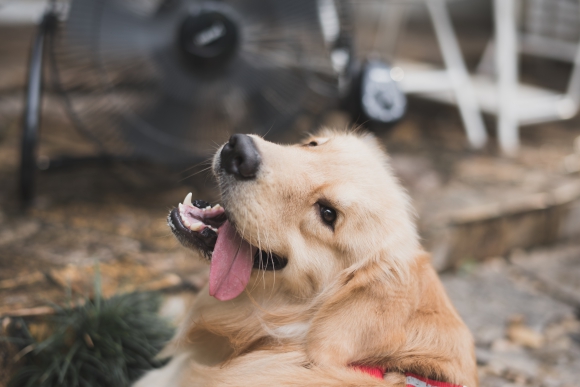


ASK US
Heat Stroke in Pets
As temperatures start to climb, we must address the seriousness of pets getting heat stroke. Over exposure to high temperatures can cause serious and irreversible damage, and in some cases death.
Here are some tips to keep your outdoor adventuring pet from suffering heat related illnesses.
- Stay Well Hydrated: Keep your pets as hydrated as possible by always having fresh water available in the places your pets spend time and by frequently offering small sips of water during activity.
- Avoid Exercise During the Hottest Parts of the Day: Instead of venturing out for your daily walk between the hours of 10 a.m. and 4 p.m., choose early morning or evening times that are cooler and typically less sunny.
- Seek Shade: Direct sun on your pet’s body will not only cause an increase in body temperature but also more body water loss. Strive to find exercise / hang out spots that are primarily in the shade instead of constant exposure to the sun.
- Take Frequent Breaks: Even if you and your pooch feel fully energized and capable of scaling that hiking hill, make sure to stop and rest frequently. How frequently depends on you and your dog’s fitness levels and environmental factors, but we suggest stopping and resting every 15 minutes when physically exerting yourself. Less physically fit pets and people exercising in hotter and more humid climates should stop as frequently as needed.
- Avoid Confinement in the Car: One of the deadliest hazards for your pet is the elevated temperatures that occur inside our vehicles. Even if you plan to only be away from the car for a few minutes, unforeseeable circumstances may keep you occupied for longer.
- Keep the Indoors Cool, Too: Heat-related health concerns are not exclusive to outdoor environments. Even your home can potentially become too hot during the summer months. During hot times of the year, always provide plentiful air circulation with a fan and air conditioning (if possible).
Be on the lookout for warning signs: 
- Excessive panting
- Salivating
- Staggering while walking / disorientation
- Seizures
- High body temperature
- Tongue that is an abnormal color (dark, bright red, muddy, or pale)
- Sticky or dry gums / dehydration
- Bloody vomiting, diarrhea or stool
- Vomiting
- Collapse
- High heart rate
Please be aware of these signs and don’t ignore them if they appear, hoping that your pet will just “push through” it. If you see any signs, contact your local vet immediately. If your vet is closed, contact your local animal emergency center.


